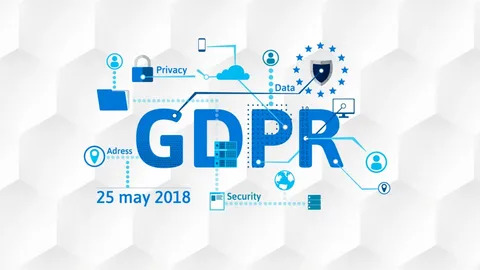Understanding GDPR and its Implications
The GDPR, implemented in May 2018, is a stringent set of regulations aimed at safeguarding the personal data of European Union (EU) citizens. It applies to any organization, regardless of its location, that processes personal data of EU residents. In the context of digital marketing, this means that businesses worldwide must adhere to GDPR when handling the data of EU customers or prospects.
Compliance is Non-Negotiable
Non-compliance with GDPR can result in hefty fines, which can severely impact a business's bottom line. Therefore, it is crucial for digital marketing professionals and businesses to understand the key aspects of GDPR compliance.
1. Consent is Key
Under GDPR, individuals must provide clear and unambiguous consent for their data to be collected and processed. This applies to email marketing, social media targeting, and any other data-driven marketing activities. Businesses should ensure that their consent forms are easy to understand and prominently displayed.
2. Data Minimization and Purpose Limitation
Marketers should only collect data that is necessary for the intended purpose. This means avoiding the collection of excessive or irrelevant information. Additionally, the data collected must only be used for the specific purpose for which it was obtained.
3. Data Subject Rights
GDPR grants individuals several rights regarding their personal data, including the right to access, rectify, and erase their data. Marketers must be prepared to respond to these requests promptly.
4. Data Security Measures
Implement robust data security measures to protect personal data from breaches. Encryption, access controls, and regular security audits are essential components of GDPR compliance.
5. Data Transfer Outside the EU
Transferring personal data outside the EU is subject to strict rules. Adequate safeguards, such as the use of Standard Contractual Clauses or certification under the EU-US Privacy Shield (if applicable), must be in place.
The Impact of GDPR on Digital Marketing Services
Digital marketing services have undergone a transformation due to GDPR. Many businesses are now seeking specialized digital marketing agencies with expertise in GDPR compliance. These agencies can help clients navigate the intricacies of GDPR while optimizing their marketing strategies.
Digital Marketing Salary and Jobs in the GDPR Era
The demand for professionals with expertise in digital marketing and GDPR compliance has surged. Companies are willing to pay competitive digital marketing salaries to attract and retain talent capable of ensuring compliance while driving results. This demand has also opened up numerous freelance digital marketing opportunities, allowing skilled individuals to work independently in this evolving field.
The Evolving Landscape of Digital Marketing
As the digital marketing landscape continues to evolve, it's imperative to stay agile and adapt to emerging privacy laws and regulations. GDPR served as a catalyst for change, prompting many countries and regions to develop their own privacy laws. For example, the California Consumer Privacy Act (CCPA) in the United States and the Personal Data Protection Act (PDPA) in Singapore share similarities with GDPR, emphasizing the global importance of data privacy.
These laws are not mere bureaucratic hurdles but rather opportunities for businesses to build trust and stronger relationships with their customers. Compliant businesses can proudly display their commitment to data protection, which can enhance their brand image and foster customer loyalty.
Digital Marketing Services in the Age of Privacy
Digital marketing agencies have had to reconfigure their strategies to align with GDPR and other privacy regulations. Services like data analytics, customer profiling, and personalized marketing have become more nuanced. It's no longer about amassing vast amounts of data but using it ethically and effectively to provide value to consumers.
Services related to data protection, compliance audits, and consent management have surged in demand. Businesses are investing in these services to ensure they not only avoid hefty fines but also gain a competitive edge by offering superior data privacy standards.
Digital Marketing Salary Trends
The demand for skilled digital marketing professionals who understand privacy laws has led to competitive salary packages. Digital marketing managers, data protection officers, and compliance specialists are among the most sought-after roles. Salaries have risen to attract and retain top talent capable of navigating the complex intersection of marketing and data protection.
Moreover, freelance digital marketing has become an attractive option for professionals looking for flexible work arrangements. Many businesses prefer hiring freelance experts on a project basis to ensure they receive specialized knowledge without the long-term commitment of full-time employment.
Adapting to Future Changes
The digital marketing landscape will continue to evolve as technology advances and new privacy laws emerge. Staying ahead of the curve requires ongoing education and a commitment to ethical data practices. Investing in employee training and seeking partnerships with experts in data privacy will be crucial for businesses to thrive in this dynamic environment.
Conclusion
Navigating GDPR and privacy laws in digital marketing is an ongoing process. By prioritizing data protection, gaining a deep understanding of GDPR, and staying up-to-date with evolving regulations, businesses and professionals can harness the power of digital marketing while safeguarding individual privacy. Digital marketing services, salaries, and job opportunities continue to evolve in this new landscape, making it essential to stay informed and adaptable in the dynamic world of digital marketing.

